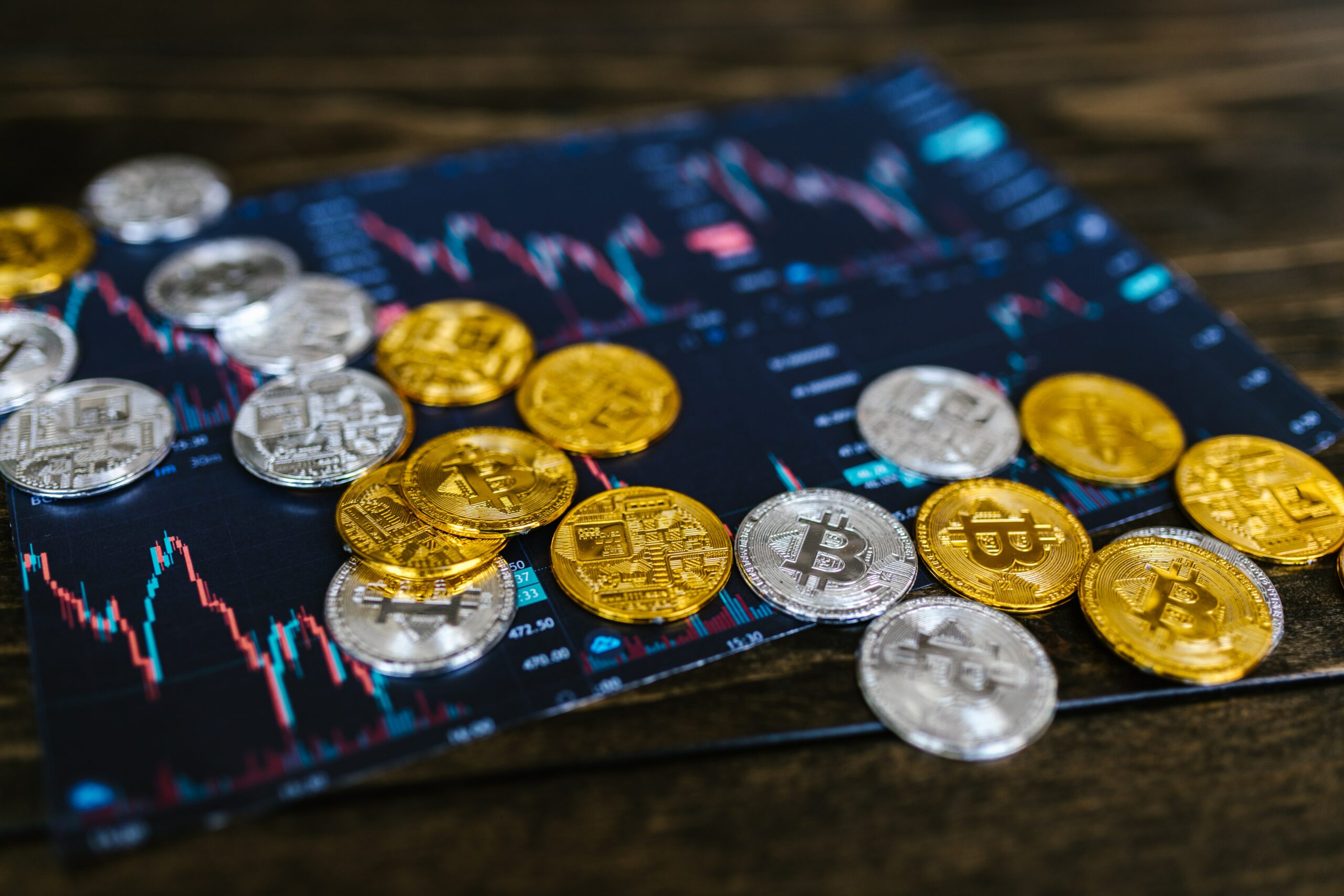Gold and Silver Trading in Islamic Accounts
Gold and silver trading in Islamic accounts is a unique form of trading that is becoming increasingly popular among Muslim investors. This type of trading is based on Islamic principles and is designed to be compliant with Sharia law. It is an attractive option for those who wish to invest in gold and silver without violating their religious beliefs. This type of trading is becoming increasingly popular as more investors become aware of the potential benefits it offers. This article will provide an overview of gold and silver trading in Islamic accounts, including the advantages and disadvantages of this type of trading.
Check out our full review of commodity trading in Islamic accounts here.

Gold and Silver Trading Overview
People have been trading gold and silver for centuries as a popular form of investment. It allows investors to diversify their portfolios and hedge against inflation. Gold and silver are two of the most sought-after commodities in the world. Many people use their prices as a barometer of economic health.
You can trade gold and silver through the following options:
- Physical metal – Physical gold and silver can be bought as coins, bars, and jewelry.
- Futures contracts – are agreements to buy or sell a certain amount of gold or silver at a predetermined price on a future date.
- Exchange-traded funds (ETFs) – are investment funds that track the price of gold or silver and can be bought and sold on the stock market.
It is essential to understand the factors that affect the prices of gold and silver. These include supply and demand, inflation, geopolitical events, and central bank policies. It is also important to understand the different types of gold and silver products available, and the associated costs and risks.
Islamic Gold & Silver Trading
Trading gold and silver in Islamic accounts is becoming increasingly popular among investors. This type of trading is based on Islamic principles and is designed to be compliant with Sharia law. It is important to understand the basics of gold and silver trading in Islamic accounts before engaging in this type of investment.
When trading gold and silver in Islamic accounts, investors must be aware of the concept of riba, or usury. This concept prohibits the charging of interest on any type of loan or investment. As such, Islamic accounts do not allow for the use of margin or leverage. This means that investors must have sufficient funds in their account to cover the full value of their trades.
In addition, Islamic accounts do not allow for the use of derivatives or futures contracts. This means that investors must purchase physical gold or silver in order to trade it. This also means that investors must pay the full spot price of the metal when they purchase it.
When trading gold and silver in Islamic accounts, investors must also be aware of the concept of gharar. This concept prohibits the sale of any item that is not in the possession of the seller. As such, investors must ensure that they are purchasing gold and silver from a reputable dealer who has the physical metal in their possession.
Finally, investors must be aware of the concept of maysir. This concept prohibits the use of speculation or gambling in any form. As such, investors must ensure that they are trading gold and silver based on sound investment principles and not on speculation.
Gold Trading
Islamic law, also known as Sharia law allows traders to use Islamic accounts. It prohibits earning or paying interest, and as such, traders must use a swap-free or no-riba trading system. This system involves exchanging currencies at a predetermined rate without any interest. One popular form of trading in Islamic accounts is gold trading, which is considered a safe-haven asset and a hedge against inflation and economic risks. Traders may trade gold in various forms such as coins, bars, or futures contracts. However, they must follow specific rules and regulations to comply with Sharia law.
Silver Trading
Islamic accounts conduct silver trading in compliance with Shariah law. This involves prohibiting interest charges and speculative trading. Physical delivery of silver is mandatory, requiring the investor to purchase and take possession of the silver. Installment payments are made, instead of a lump sum under the deferred payment principle of “murabaha”. Commodity trading or “tawarruq” is allowed, enabling investors to purchase silver, and sell it later for a profit, provided they do not engage in speculative trading. By adhering to the principles of Islamic finance, investors can diversify their portfolios and ensure compliance with Shariah law while taking advantage of the potential profits from silver trading.
Tax Implications
The trading of gold and silver in Islamic accounts is a complex matter that requires careful consideration of the tax implications. As with any investment, it is important to understand the tax implications of trading gold and silver in Islamic accounts before making any decisions.
In general, gold and silver trading in Islamic accounts is subject to the same tax rules as any other investment. This means that any profits or losses from trading gold and silver in Islamic accounts are subject to capital gains tax. Additionally, any income generated from gold and silver trading in Islamic accounts is subject to income tax.
Tax implications of gold and silver trading in Islamic accounts may vary depending on the country in which the account is held. For example, some countries may impose additional taxes on gold and silver trading in Islamic accounts.
There are also specific rules that must be followed in order to ensure compliance with Islamic law. For example, Islamic law prohibits the use of interest or leverage when trading gold and silver. Additionally, Islamic law prohibits the use of derivatives or futures contracts when trading gold and silver.
Finally, these tax implications of Islamic gold and silver trading may also vary depending on the type of account. For example, some Islamic accounts may be subject to different tax rules than other account types. It is therefore important to research the specific tax implications of gold and silver trading in Islamic accounts before making any decisions.
Different Strategies Islamic Gold and Silver Trading
The Islamic faith has a unique set of rules and regulations that govern the way its adherents conduct their financial affairs. As such, Islamic accounts are becoming increasingly popular among investors who wish to adhere to the principles of their faith while still engaging in the financial markets. One of the most popular investments for Islamic accounts is gold and silver trading. However, due to the unique nature of Islamic accounts, there are certain strategies that must be employed in order to ensure that the trading is compliant with Islamic law.
- Spot Contract
A spot contract is a type of agreement between two parties to buy or sell a certain amount of gold or silver at a predetermined price. This type of contract is permissible under Islamic law as it does not involve any form of interest or speculation.
- Forward Contract
A forward contract is similar to a spot contract, except that it involves a commitment to buy or sell a certain amount of gold or silver at a predetermined price at some point in the future. This type of contract is also permissible under Islamic law, as long as the parties involved do not engage in any form of speculation or interest.
- Swap Contract
A swap contract is an agreement between two parties to exchange a certain amount of gold or silver at a predetermined price at some point in the future. This type of contract is permissible under Islamic law, as long as the parties involved do not engage in any form of speculation or interest.
Is Gold Trading Halal in Islam?
The question of whether gold trading is halal (permissible) in Islam is a complex one, as there is no single answer that applies to all Muslims. The Islamic faith has a variety of interpretations and opinions on the matter, and it is ultimately up to each individual to decide what is permissible for them.
In general, gold trading is considered permissible in Islam as long as it is done in a responsible and ethical manner. This means that the gold must be acquired and traded in a way that is consistent with Islamic principles. For example, it should not involve any form of usury (interest) or speculation. Additionally, it should not involve any form of gambling or other activities that are considered haram (forbidden).
Ultimately, it is up to each individual to decide whether gold trading is permissible for them. It is important to research the matter thoroughly and consult with knowledgeable individuals before making any decisions.
Is Silver Trading Halal in Islam?
The question of whether silver trading is halal in Islam is a complex one. In general, Islamic law prohibits the trading of any commodity that is not considered to be a necessity. Silver is not considered to be a necessity, and therefore it is not permissible to trade it according to Islamic law.
However, there are some exceptions to this rule. For example, if silver is used as a form of currency, then it is permissible to trade it. Additionally, if silver is used as a form of investment, then it is permissible to trade it as long as the investor does not engage in any form of speculation or gambling.
It is important to note that the Islamic law on silver trading is subject to interpretation. Therefore, it is important to consult with a qualified Islamic scholar before engaging in any form of silver trading. Additionally, it is important to ensure that any silver trading activities are conducted in accordance with Islamic law.
Conclusion
In conclusion, those looking to invest in precious metals in compliance with Islamic law can consider gold and silver trading in Islamic accounts as a viable option. The absence of interest payments and the utilization of physical assets make it an appealing choice for portfolio diversification. However, it is crucial to note that gold and silver trading in Islamic accounts still carries market risk and requires a cautious approach.







